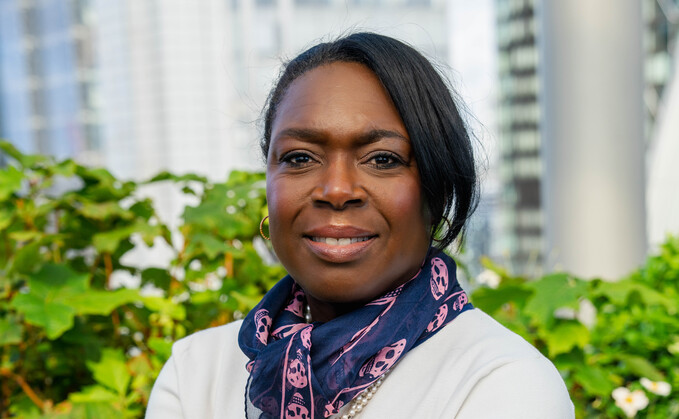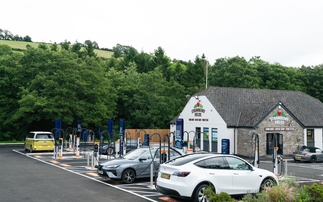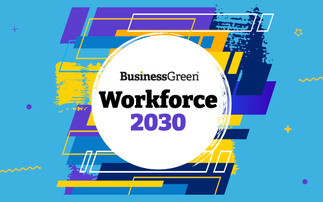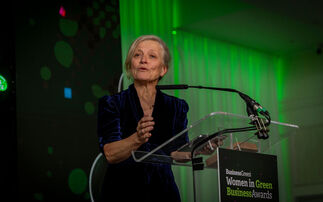
Partner Insight: Equans' chief human resources officer explains why a greener future cannot be achieved without equity, care, and inclusive design at its core
Part of the Bouygues Group, Equans is a provider of sustainable facilities management and regeneration, and cutting-edge energy and digital services. With 15,000 employees across the UK & Ireland, they deliver decarbonisation across the built environment and help businesses, communities, public sector organisations and government to accelerate the transition to a low carbon, resilient world.
Pam Wright is chief human resources officer at Equans UK & Ireland.
BusinessGreen: What makes delivering diversity and tackling gender inequities so crucial to the net zero transition?
Pam Wright: Decarbonisation is driven by the expertise of people - and tackling gender inequities brings diversity of thought, driving innovation. Diverse teams also challenge the status quo and help us design climate solutions that truly work for everyone. Women also bring vital leadership in both communities and businesses, and when we fail to make space for this we risk slowing down progress. Inclusion must therefore underpin every action if we are to accelerate a just and sustainable future.
What steps is Equans taking to tackle gender inequalities and increase the participation and retention of women in the green economy?
We've embedded diversity, equity and inclusion into our business strategy through our ‘Be Yourself' programme – this includes actions to enhance gender equality and directly supports our business' aims to deliver a lower carbon, more resilient future for our customers.
Our ‘Women in Leadership' targeted development programme has supported nearly 90 women across the business to date - for those on the programme we've seen 22 promotions and an improved retention rate. Alongside this, we've reformed our policies - from menopause support and inclusive hiring practices to family leave from day one - to ensure equity is built into the structure of our business. Campaigns such as #EquansBeYourself use employee storytelling to celebrate difference and inspire cultural change. We've also rolled out inclusive hiring practices and leadership training across the organisation, ensuring that equity is built into the way we recruit, lead, and develop talent.
What more needs to be done to ensure the green economy is a place where women feel they can build long, successful careers – and ultimately take the lead?
We need to go further than representation: building sustained career pathways through mentoring, sponsorship and leadership development is essential. Equity must also be designed into business systems, for example through more flexible working models.
Visibility is also critical and we need to platform women's voices, particularly in technical and frontline roles, creating space for their leadership at all levels. No single organisation has all the answers, so industry-wide collaboration and transparency about challenges are all vital if we're to move faster and achieve more together.
What excites you most about the next generation of women currently in the early stages of green careers?
As Gen Z professionals enter the workforce they are bringing bold ideas, digital fluency, and a mindset for collaboration - all essential for success in the green economy. This generation is also uncompromising in its expectations around equity, sustainability, and purpose, and they are holding organisations to account.
Young women are entering this sector determined to make change, and their values-first approach is reshaping what employers must offer. Their drive to align purpose with action is inspiring, and it's why we're so proud to sponsor the 'Rising Star' category at this year's Women in Green Business Awards, which recognises and celebrates their outstanding contributions.
In what ways have the women you work with inspired you, or helped shape your career?
I know first-hand that having strong female role models is critical. I am also constantly inspired by the resilience, empathy, and ingenuity of the women within our organisation who shape our culture every day - from directors leading by example to new joiners who challenge us to think differently.
When women speak openly about their everyday challenges or the invisible loads they carry beyond the workplace - such as childcare or caring responsibilities - it reassures others that they are not alone. In those moments, the understanding and support of a line manager or team can make all the difference.
What do you feel is the most common mistake stakeholders in the green economy are making in their efforts to increase the participation and retention of women?
Too often, DE&I is treated as a ‘people problem' rather than as a business solution. It's not just the right thing to do – it is essential to performance and sustainability. Another mistake is focusing solely on hiring without addressing progression, culture, or flexibility. Attraction without retention simply creates a revolving door. We must also avoid assuming a single narrative for women's experiences. Intersectionality matters - race, disability, sexuality, and other factors all shape inclusion. Finally, while skills programmes have value, the bigger issue often lies in workplace design. Systems, processes, and mindsets must be reimagined if we are to create real equity.
What are you most looking forward to from attending the Women in Green Business Awards? What do you hope to take away from the event?
I'm looking forward to connecting with other changemakers who are challenging boundaries and pushing the green economy forward. Events like this are energising - they allow us to celebrate progress, while reminding us how much more there is to do, particularly in engineering, operational, and frontline roles.
I hope to take away new ideas and stories that we can use to embed equity even more deeply into our organisational culture - we don't have all the answers and learning from one another is so important. Most of all, I'm excited to spotlight the incredible women who are shaping the future of the green economy.
How important is it to bring key stakeholders, policy makers, and sustainability executives together to celebrate the role of women in the green economy?
It's vital.
Change accelerates when decision-makers hear the lived experiences of those driving transformation on the ground. These gatherings build momentum by sparking ideas, fostering accountability, and creating collaboration across sectors.
Celebrating women is not a ‘nice to have' - it's a strategic imperative. Visibility creates opportunity, and opportunity encourages leadership. Events like these help reframe the narrative - showing that women are not only participants in the green economy, but leaders of it.
What is the biggest misconception about the green economy?
That the green economy is all about technology and infrastructure. It is deeply human. A greener future cannot be achieved without equity, care, and inclusive design at its core.
What would your green superpower be?
My green superpower would be to make hidden connections visible: to show how every choice we make impacts both people and the planet. With this clarity, we'd all feel empowered to take actions that drive sustainability and inclusion hand in hand.
Equans UK & Ireland is sponsor of the 'Rising Star' category at the Women in Green Business Awards 2025 - get your tickets for the event on 8 October here.






